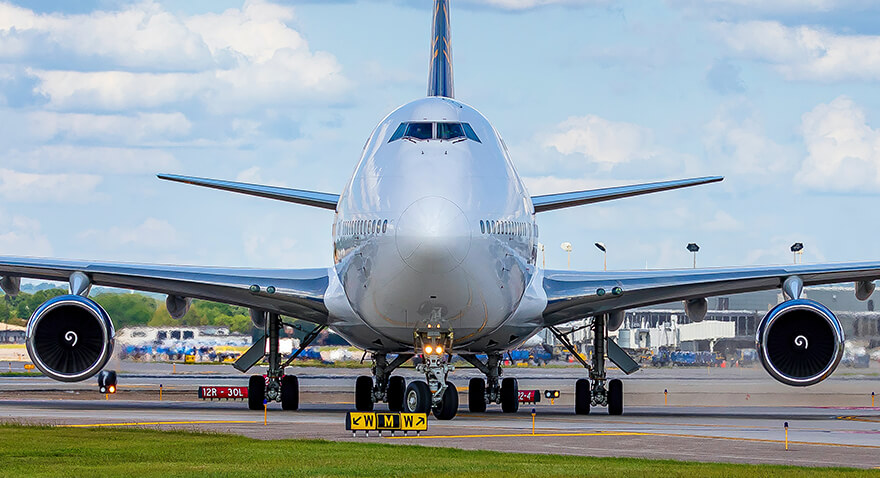Air Shipments
- Home
- Air Shipments
Brochures

Tieffe Group is a certified freight forwarder “IATA CARGO AGENT” for the management of international shipments by air. Our team, after analyzing your needs, can propose and offer you the most suitable solutions in an active and flexible discussion with your company. Established relationships with major international carriers allow us, in fact, to reserve preferential cargo space at always competitive rates.
Our services by air:
- Standard: direct and transshipment services to all worldwide destinations, depending on your needs;
- Express: with which we ensure fast and safe transportation for small, medium and large cargo;
- Groupage: air freight forwarding with consolidated cargo, so as to offer customers the economic benefits of consolidation with other goods;
- Charter: full and partial charter service, for exceptional cargo or large quantities.
- Temperature-controlled transportation: by using envirotainer, gel pack or dry ice;
- ADR/DG (dangerous) goods: management of documentation for dangerous goods, possible packing of goods according to DGR regulations and PAX or CAO air services according to your needs;
- Customized packing services: through our packer we can offer cheaper solutions with pallets/plastic film or solutions with wooden crates and cages.
We have an appointed warehouse in major airports where we prepare goods and documents to ensure smooth shipment by air: security checks (xray/sniffer), parcel labeling, AWB printing and export customs operation.
Finally, with the daily shuttle service, we deliver the goods to the airport for acceptance by the airline. We are then able to receive goods on day A, prepare them for shipment and deliver them to the airport for day B.

As part of the IATA (Paperless) program aimed at reducing the use of paper, we have joined the e-awb system for the telematic transfer of AWB, thus optimizing the timing of shipment data transmission while safeguarding the environment.
Completing the service and customer support is a continuous updating by our staff through courses organized by IATA (International Air Transport Association) on the main market news and issues related to the world of air transport.
What are Air Shipments?
Air shipments refer to the transportation of goods via aircraft. This mode of shipping is renowned for its speed, reliability, and global reach. As businesses strive to meet the demands of an interconnected world, air shipments have become a preferred choice for time-sensitive cargo.
Key Advantages of Air Shipments:
Speed: Air shipments are synonymous with rapid transit. Unlike other modes of transportation, airplanes can cover vast distances in a matter of hours. This makes air shipments ideal for perishable goods, high-value items, and time-sensitive deliveries.
Global Connectivity: Air cargo services connect businesses to a global marketplace. Major airports serve as hubs, facilitating the seamless transfer of goods between continents. This interconnected network ensures that products can reach international destinations swiftly and efficiently.
Reliability: The aviation industry prioritizes precision and timeliness. As a result, air shipments are renowned for their reliability. Airlines adhere to strict schedules, minimizing the risk of delays and ensuring that shipments arrive at their destinations on time.
Reduced Handling: Air shipments typically involve fewer touchpoints in comparison to other transportation modes. This minimizes the risk of damage or loss during transit, making air freight a secure option for delicate or high-value items.
Industries Benefiting from Air Shipments:
Perishable Goods: Industries dealing with perishable items, such as fresh produce, pharmaceuticals, and flowers, leverage air shipments to ensure that products reach their destination swiftly while maintaining their quality.
High-Tech and Electronics: The high-tech sector relies on air shipments for the quick and secure transport of electronic components, ensuring that the latest innovations can reach markets rapidly.
Fashion and Apparel: The fast-paced world of fashion demands quick turnaround times. Air shipments enable fashion brands to swiftly move inventory, respond to trends, and meet the demands of an ever-changing market.
Challenges and Considerations:
Cost: While air shipments excel in speed, they can be more expensive than other modes of transportation. Businesses must weigh the urgency of delivery against the associated costs to determine the most cost-effective shipping solution.
Environmental Impact: Air shipments contribute to carbon emissions. Companies focused on sustainability may need to balance the speed of air transport with their environmental commitments.
Conclusion:
In the realm of logistics, air shipments stand out as a catalyst for global trade and rapid commerce. Their speed, reliability, and global connectivity make them an integral part of the modern supply chain. While challenges such as cost and environmental impact exist, the benefits of air shipments continue to make them a preferred choice for businesses navigating the complexities of today’s global marketplace. As industries evolve and demands intensify, the skies remain a vital conduit for the seamless movement of goods around the world.






